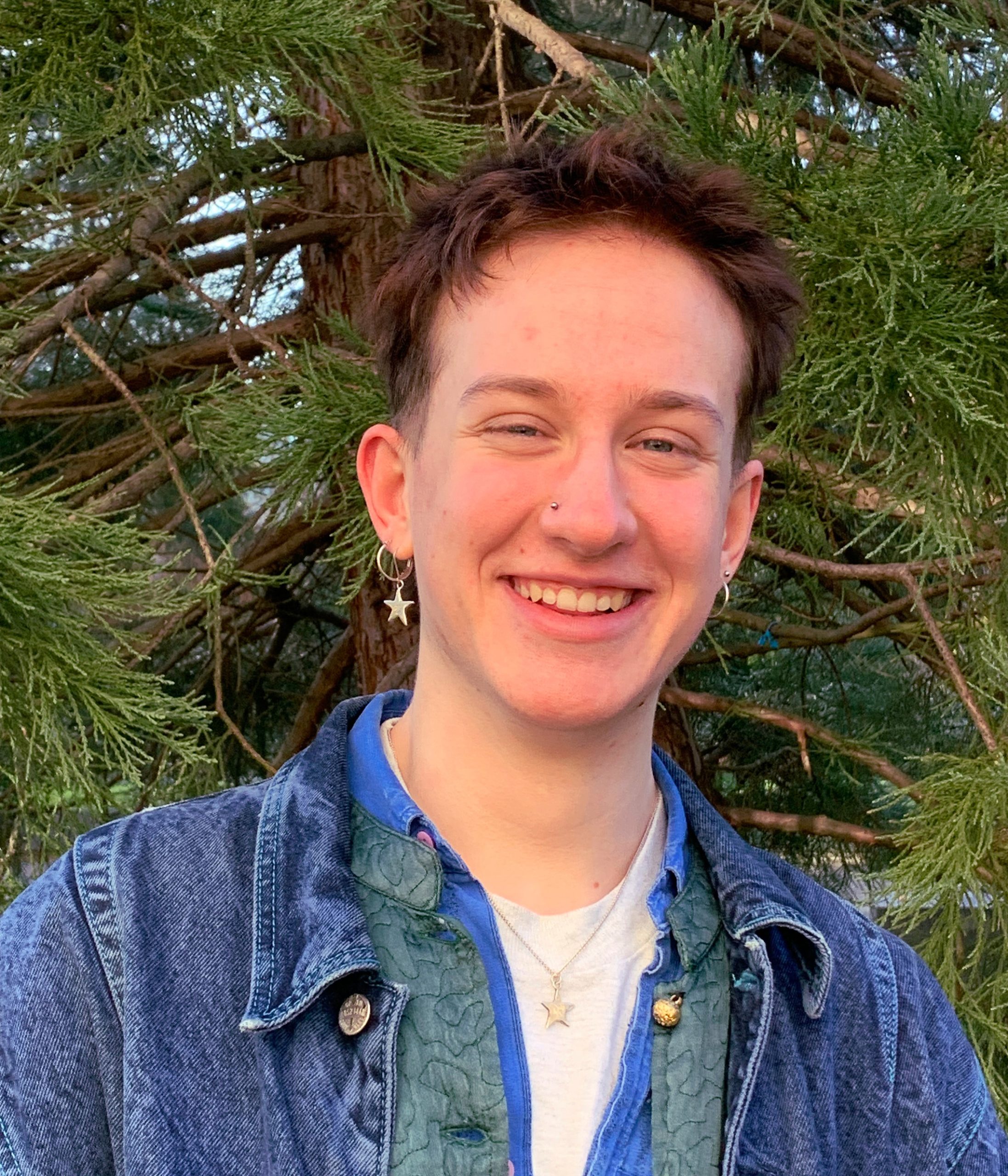

Alex Murphy
Alexander Murphy is a fourth-year student majoring in Sociology and minoring in GRSJ.
He is currently working on research regarding how non-binary transmasculine people understand and enact masculinity for his undergraduate honours thesis. Beyond this current work, his research interests include topics of gender, sexuality, embodiment, and qualitative methodologies.
Outside of academia, he enjoys doing art, reading scifi, and camping. We spoke to Alexander about his research and what he’s learned so far.
Masculinity studies, when investigating populations other than cisgender men, have focused largely on cisgender women or transgender men. When non-binary people are included, little distinction is drawn between them and trans men. The lack of attention to non-binary transmasculine people (who transition towards masculinity but do not identify as men) leaves questions about how they may uniquely construct masculinity, especially given West and Zimmerman’s (1987) assertion that one “does” masculinities to be read as a man, which may not be desirable for non-binary people.
This research explores how non-binary transmasculine people understand and enact masculinity. Eighteen qualitative, semi-structured interviews were used to investigate transmasculine non-binary people’s relationship to masculinities and how they enact masculinity in their lives. Preliminary findings suggest a diversity of understandings of masculinity, with common themes of masculinity as related to the physical body, and as something that is both interactional and intrinsic. Participants often expressed not wanting to be misgendered as women while also feeling uncomfortable when their enactments of masculinity meant being perceived as men. However, participants also frequently expressed a sense of freedom from gender norms and the ability to embrace femininity through their non-binary identification.
These findings have implications for expanding understandings of who needs access to gender-affirming care and for what reasons (given the reported importance of physical masculinity), and for better understanding the experiences of transmasculine non-binary people.
How did you become interested in this topic? Why did you choose it for your thesis?
I first became interested in my topic because I actually wanted to write about it for a regular term paper in a class last year. When I went to do research for it, I realized that there was practically no sociological literature about non-binary masculinities, so I figured out that I would have to do the research I wanted to see in the world. I was also excited by the idea of getting to do research with a community that means so much to me; it was a real treat to get to interview non-binary transmasculine people.
Can you summarize your project and its main findings for us?
My project is trying to qualitatively find out how transmasculine non-binary people (people assigned female at birth who identify with masculinity but do not identify as men) enact and understand masculinity. While I am just starting on my analysis at this point, main themes have emerged around the importance of masculine bodies for participants’ sense of masculinity, as well as the struggle that non-binary transmasculine people face in wanting to embody masculinities without perpetuating many of the harms that they associate with men and patriarchy.
What was your favourite part of doing research?
My favorite part so far has been conducting the interviews. All of my participants are lovely people who brought perspectives that I never would have imagined. It was great to expand my own perspective and I hope to convey this diversity in my thesis. Many participants also expressed that they were excited to take part in my research; many of them are also students and are aware of the lack of representation for non-binary people in academia. It’s nice to feel like I am working towards filling this gap with the people I interviewed.
What have you learned during your research that has surprised you the most?
Embarrassingly, I have been surprised by how much work data collection and processing is! I have definitely gained a new appreciation for all of the qualitative work that I have read now that I have spilled my own blood, sweat, and tears over writing interview guides, scheduling and conducting interviews, writing field notes, transcribing interviews, and laboriously coding all my data. Don’t get me wrong, the effort makes me even more proud of what I have done and I can’t wait to do more research in the future, but it has been more intense than I anticipated.
What was your experience like working with Sociology faculty on this project?
My experience so far has been overwhelmingly positive. I was definitely nervous at first as I really admire the research of both of my supervisors, but they have been really supportive. It has been great to learn from people who do research for a living; they have answers to questions I wouldn’t even know how to ask. I have also appreciated that they have given me the space to make my own choices and develop processes that work best for me. We have been able to strike a good balance of me working independently while still having the research training wheels on.


